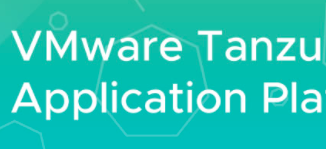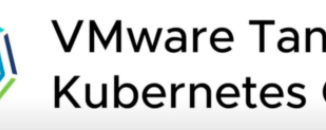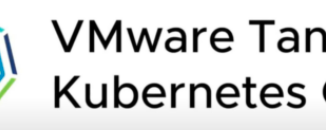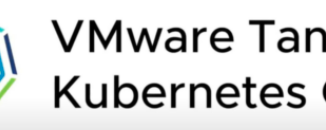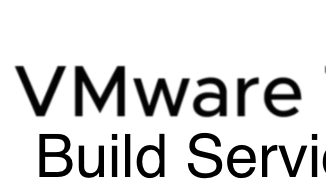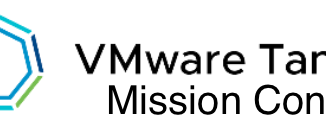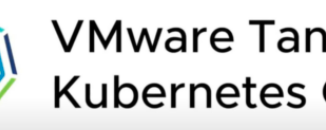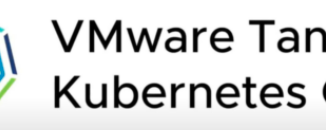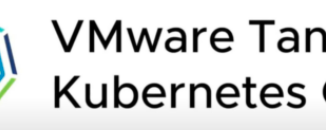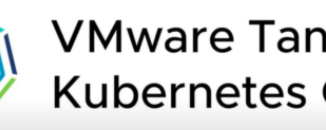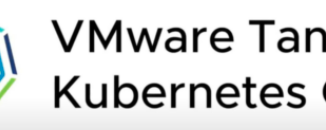Tanzu Application Platform (TAP) is a packaged set of components that helps developers and operators build, deploy, and manage apps on Kubernetes. It is currently in beta ( use for testing only). Note: Please go through VMware official documentation for latest updates. Overview Prerequisites Tanzu Network account to download Tanzu Application Platform packages A
Author: Eknath
TKG 1.4 on AWS – Part 4 : Delete the clusters
Overview Deleting workload cluster takes off all namespaces and is non-reversible. Ensure to double check in case if you are doing it on production workloads. Depending on the cluster contents and cloud infrastructure, you may need to delete in-cluster volumes and services before you delete the cluster itself. Delete Workload cluster Before
TKG 1.4 on AWS – Part 3 : Create workload cluster
Overview In VMware Tanzu Kubernetes Grid, Tanzu Kubernetes clusters are the Kubernetes clusters in which your application workloads run. Tanzu Kubernetes Grid automatically deploys clusters to the platform on which you deployed the management cluster. For example, you cannot deploy clusters to Amazon EC2 or Azure from a management cluster that
TKG 1.4 on AWS – Part 2: Deploy management cluster
Overview A management cluster is the first Key component that you deploy when you create Tanzu Kubernetes Grid. The management cluster is a Kubernetes cluster that performs the role of the primary management and operational control plane for the Tanzu Kubernetes Grid. This is where Cluster API runs to create the Tanzu
TKG 1.4 on AWS – Part 1: Prepare the resources
Overview This post explains how to prepare Amazon EC2 environment for running Tanzu Kubernetes Grid. Before you can use the Tanzu CLI or installer interface to deploy a management cluster, you must prepare the bootstrap machine (can be your local workstation or any vm that has internet access) on which you
TBS: Install TBS on TKGm workload cluster
Overview Tanzu Build Service uses the open-source Cloud Native Build packs project to turn application source code into container images. Build Service executes reproducible builds that align with modern container standards, and additionally keeps image resources up-to-date. It does so by leveraging Kubernetes infrastructure with kpack, a Cloud Native Build packs Platform, to orchestrate the
Tanzu Mission Control – Attach workload cluster
Overview Tanzu Mission Control (TMC) provides a single control point for teams to more easily manage Kubernetes and operate modern, containerized applications across multiple clouds and clusters. TMC codifies the know-how of operating Kubernetes - including deploying and upgrading clusters, setting policies and configurations, understanding the health of clusters and the
TMC – Register TKG 1.3 management cluster and create workload cluster on vSphere from TMC console
Overview Tanzu Mission Control is a centralized management platform for consistently operating and securing your Kubernetes infrastructure and modern applications across multiple teams and clouds, With TMC you can manage entire Kubernetes footprint, regardless of where your clusters reside. In this post, I will take you through the steps to register
Tanzu Kubernetes Grid – Create workload cluster on vSphere
Hola, In this post I will be demonstrating how to use Tanzu Kubernetes Grid to deploy and manage Tanzu Kubernetes Workload clusters on a vSphere environment. TKG provides commands and options to perform life cycle management operations like Create, Delete, Scale up/down of kubernetes workload cluster. Prerequisite Before you create Tanzu
Install Harbor on Ubuntu 20.04
If you are looking for an on-premises Docker image registry, then Harbor is the best solution that not only hosts your images, but also scans for any vulnerabilities. Key features of Harbor include: Security and vulnerability analysis Content signing and validation Extensible API and web UI Image replication Role-based
TKG 1.4 on Azure – Part 6 : Delete the clusters
This post covers the steps to delete the clusters that were deployed in TKG on Azure. Ensure to follow this doc only after double checking when NO APPLICATIONS ARE RUNNING. Cluster deletion completely wipes the pods running it. Delete workload cluster: Delete Management cluster: Management cluster deletion might usually take some time as
TKG 1.4 on Azure – Part 5 : Scaling operations
Scale management clusters: If you have deployed a development management cluster, like I did while creating i.e., with 1 control and worker nodes. You can scale the management clusters to production cluster type anytime using simple commands. In this post, I have covered manual scaling, but there is also auto scaling
TKG 1.4 on Azure – Part 4 : Deploy the application on workload cluster
TKG 1.4 on Azure – Part 3 : Create workload cluster
When you deploy Tanzu Kubernetes (workload) clusters to Microsoft Azure, you must specify options in the cluster configuration file to connect to your Azure account and identify the resources that the cluster will use. Create a yaml file with variables given in below template. for ex: wc-config.yaml Note: Below example is
TKG 1.4 on Azure – Part 2: Deploy management cluster
In this post, we will go through the steps to create management cluster through UI. Select Deploy under Microsoft Azure Fill in TENANT ID, CLIENT ID, CLIENT SECRET, SUBSCRIPTION ID that is collected in earlier post. Select the Region where you would like that management cluster to be deployed. Paste
